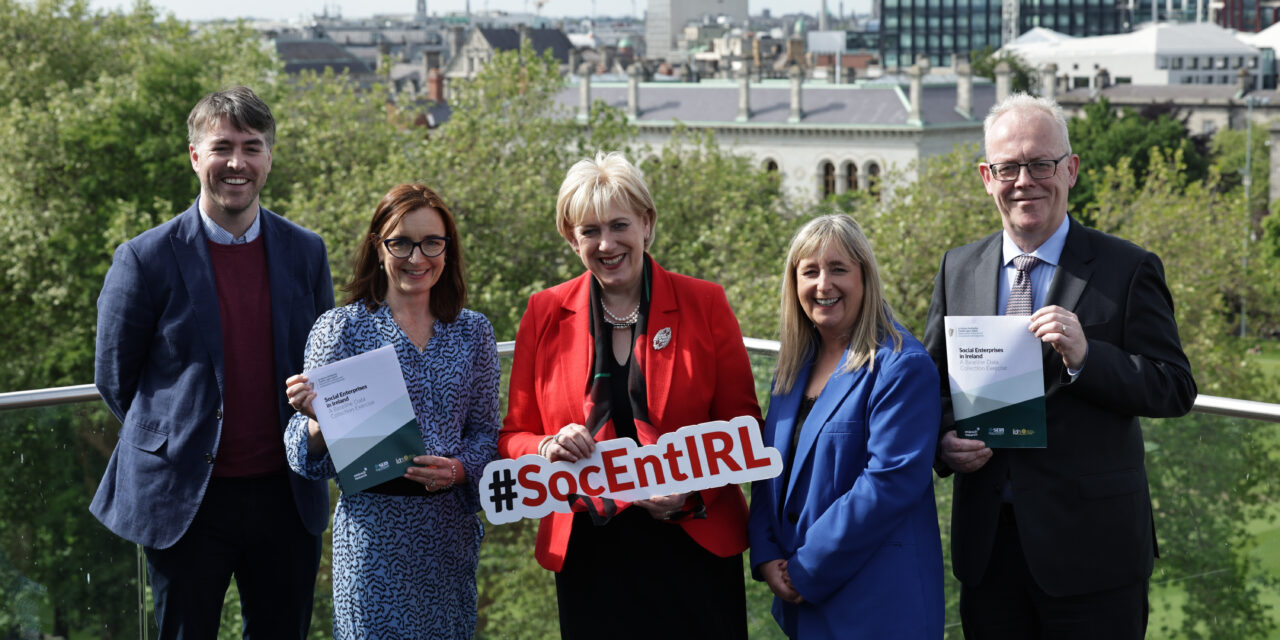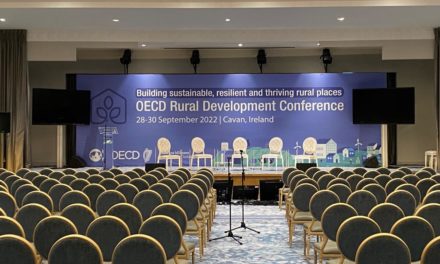A new in-depth report ‘Social Enterprises in Ireland: A Baseline Data Collection Exercise’ has provided vital insights into the sector in Ireland for the first time.
The data collected shows that there are currently 4,335 social enterprises in Ireland employing 84,382 people – three per cent of the Irish workforce.
A further 74,824 volunteers work in social enterprises, including 30,324 board members.
The total income of social enterprise was €2.34 billion in 2021.
A total of 15% of the social enterprises in Ireland operate internationally as well as nationally.
One of the most important measures in the proposed National Social Enterprise Policy was the need for improved data relating to the extent of social enterprise in Ireland and the areas in which they operate.
Historically, the lack of concrete data has impeded efforts regarding raising awareness, and the provision of supports for social enterprise.
In 2022, the Department of Rural and Community Development commissioned a consortium including Amárach Research, Social Enterprise Republic of Ireland (SERI) and the Irish Local Development Network (ILDN) to conduct the Baseline Data Gathering Exercise of Social Enterprise in Ireland.
In partnership with the social enterprise sector, an online survey was developed and published. Over 800 social enterprises completed the survey.
Launching the report, Minister for Rural and Community Development, Heather Humphreys said: “As the Department overseeing national Social Enterprise policy, it is vital that we have as much reliable data as possible about social enterprises in Ireland.
“Its launch is an important milestone for the development of this vitally important sector. For the first time we have concrete evidence of key data relating to the sector and this initiative will be key to informing future policy decisions as well as the type of supports our social enterprises need.
“This report illustrates the diversity of the social enterprises, the opportunities and challenges related to employment and volunteering, the contribution to the economy and the small size but increasing relevance and growing potential of this dynamic sector.”
She added that the report will be integral to the drafting of the next National Social Enterprise Policy for Ireland, which is due to be published later this year.
The policy is focused on three main objectives: building awareness of social enterprise, growing and strengthening social enterprise, and achieving better policy alignment.
Key information:
Social enterprises are businesses whose core objective is to achieve a social, societal, or environmental impact. Like other businesses, social enterprises pursue their objectives by trading in goods and services on an ongoing basis. However, surpluses generated by social enterprises are re-invested into achieving the core social objectives.
- The social enterprise sector in Ireland comprises 4,335 organisations
- The sector employs 84,382 people (including full-time, part-time employees and contractors). This represents 3.7% of the total Irish workforce.
- The total income for the sector is approximately €2.34bn, representing 0.63% of Ireland’s GDP.
- An estimated 74,825 volunteers participate in the sector, including 30,324 board members.
- Half of the surveyed social enterprises (49%) have been in operation for more than 20 years.
- While a variety of legal forms are adopted by social enterprises, 75% are registered as a CLG (Company Limited by Guarantee) with 88% registered with the Charities Regulator.
- 15% of social enterprises operate internationally as well as nationally.
- Social enterprises are typically microenterprises with one-nine employees (57%) or small enterprises employing 10 to 49 (35%).
- Almost half of the workforce is between 31 and 50. Women represent 69% of the workforce across the sector, and 47% of the workforce is part-time.
- Most (64%) derive their income from a mix of trading good/services and government grants.
- Data from emergent social enterprises (established in the last four years) indicates they are especially relevant in sectors of activity such as Training & Work Integration and Environmental Services, are less likely to adopt CLG status or to be registered with the Charities Regulator.
Read the full report here: Social Enterprises in Ireland – A Baseline Data Collection Exercise





